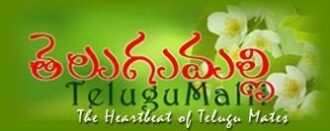Olympic medals often encapsulate high aspirations but in 2020 during the Tokyo Games, they will also carry the hopes and lives of everyday citizens. The Organising Committee for the Tokyo Olympic and Paralympic Games is asking local citizens to contribute electronic waste (e-waste) so that the gold, silver and bronze from such items to be used for Olympic medals. E-waste consists of electronic items or equipment that have been discarded without intent of re-use. The re-use of such items including mobile phones and laptops (also known as urban mining) presents a new and innovative way in which items can be recycled which might have otherwise been dumped in landfills.
So far, the committee has made significant progress in achieving its goals. 4500kg of usable metal has been collected around the country which will go to creating 5000 medals. This process to utilise e-waste is highly effective and does much less harm to the environment than traditional ore mining. As Assistant Professor of the University of British Columbia Maria Holuszko says, “The value of one tonne of materials extracted from urban mining is one hundred times higher than the same tonne from traditional ore extraction”. In comparison to traditional ore mines which only produce 3-4 grams of gold per tonne mined, one tonne of mobile phones offer up to 350 grams. This means that rather than mine using traditional methods, countries, especially those that are resource poor, and companies alike can use the potential gold mine they already have for greater returns.
One issue that is still seen as an obstacle is that this process does not yet apply the same principles to non-metallic parts of e-waste. Despite this, Japan is taking up other initiatives to address environmental sustainability in a well-rounded manner. It plans to run both the Olympics and Paralympic events entirely on renewable energy resources and re-use and/or recycle 65% of all waste produced by attendees including plastic bottles and snack packaging. The initiative is key to planting a sustainable foundation for the future of the environment and raising awareness of the issue on a wide scale. For the athletes, it goes one better. As Eri Tosaka, 2016 Olympic Gold Medallist in the women’s 48kg freestyle wrestling puts it, “I think it’s really important to have medals full of the hopes and dreams of people all over Japan”. The medals at the 2020 Games will therefore have a greater meaning for all involved.
